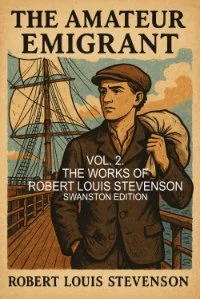By Edward Payson Powell. Edited by Colin Heston
In Nullification and Secession in the United States: A History of the Six Attempts During the First Century of the Republic, Edward Payson Powell undertakes an ambitious and far-reaching examination of one of the most fraught and recurring themes in American political development: the idea that individual states possess the legal or moral authority to nullify federal law or withdraw from the Union altogether. Written at the close of the 19th century and first published in 1897, Powell’s work reflects both the urgency of historical clarification in the aftermath of the Civil War and the enduring philosophical contest over the balance between federal power and state sovereignty.
This volume is not merely a chronicle of constitutional crises; it is a sustained meditation on the challenges of national unity in a country designed as a federation of semi-autonomous states. Powell, a journalist, historian, and keen observer of American public life, assembles a carefully documented history of six separate episodes where nullification or secession was proposed, debated, or attempted—beginning with the earliest murmurings under the Articles of Confederation and culminating in the cataclysm of the Confederate rebellion. His purpose is not only to recount these events but to interpret them, to understand the motivations behind them, and to identify the forces—legal, ideological, economic, and sectional—that allowed the American Union to survive repeated assaults on its coherence.
Nullification and Secession in the United States is more than a chronological account of rebellion and reaction; it is a civic education, a warning, and a testament. Edward Payson Powell offers readers both a panoramic view of American political development and a moral argument for the sanctity of national unity. In an age when the bonds of Union had been sorely tested, he reaffirms that the survival of the Republic has depended not only on laws and courts but on the ongoing negotiation between principle and compromise, autonomy and allegiance.
For modern readers—historians, political thinkers, and citizens alike—Powell’s work remains a rich and valuable resource. It shows that the story of America has never been one of perfect consensus, but of persistent debate and, ultimately, a shared determination to hold the states together in common purpose. Few books of its era so skillfully combine historical scholarship with constitutional insight, and few provide as clear a window into the recurring crises that have shaped—and tested—the idea of the United States itself.
Read-Me.Org Inc. Australia, New York & Philadelphia. 2025. 230p.




